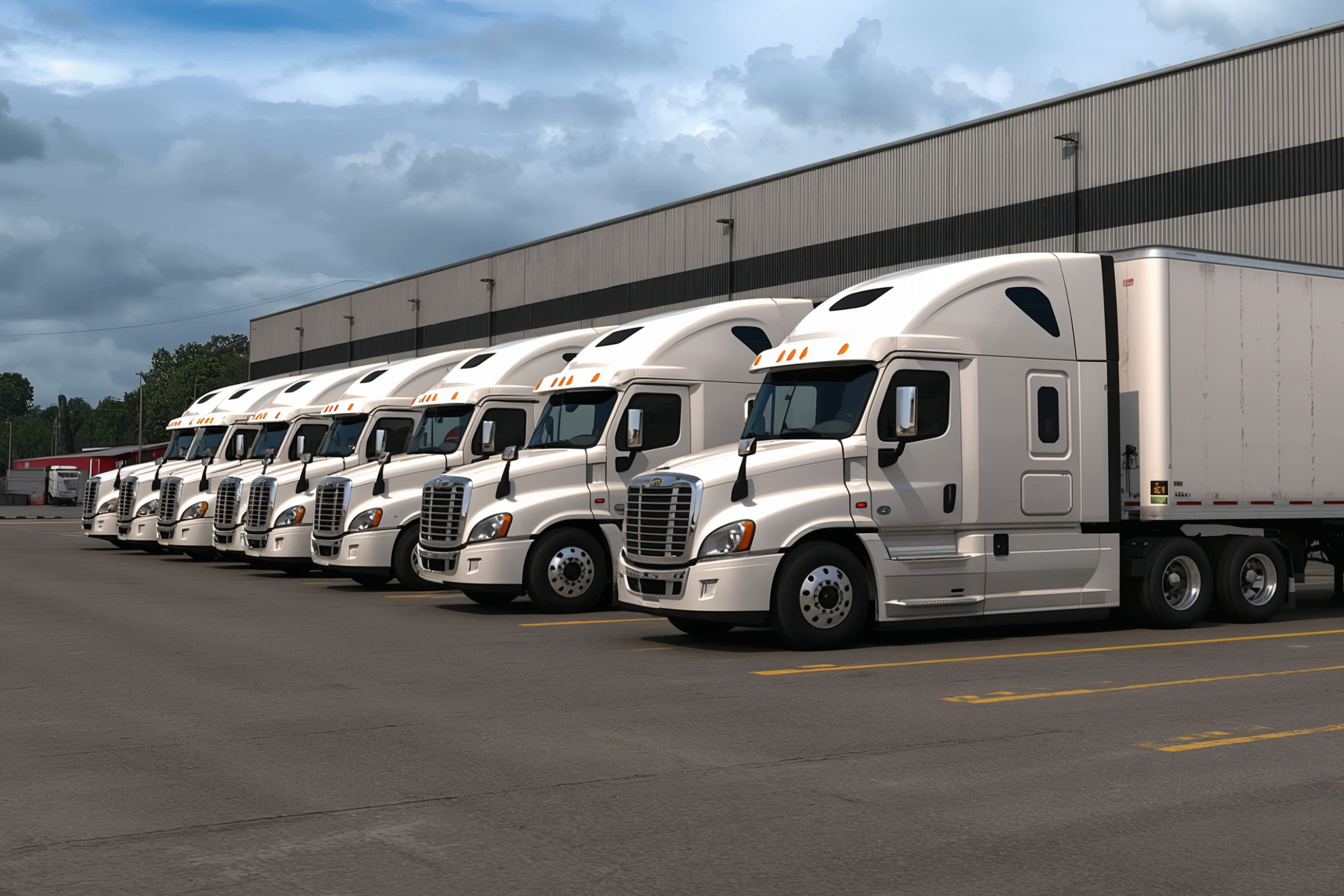Driving Efficiency in the Cold Chain: Key Insights From the TCA’s Refrigerated Meeting
Refrigerated trucking faces operational challenges unlike any other freight type. From equipment maintenance complexities to the industry’s highest detention rates, temperature-controlled carriers must navigate unique pressures while competing in an increasingly demanding market.
That’s what made the Truckload Carriers Association Refrigerated Meeting such a valuable gathering. Taking place in mid-July in Colorado Springs, the conference brought together refrigerated carriers, technology providers, and industry experts to tackle these specialized challenges head-on. Optimal Dynamics Head of Sales Zach Schuchart was on hand to connect with reefer operators and discuss how AI-powered decision automation is transforming temperature-controlled operations.
The environment provided meaningful conversations about the solutions that are delivering results in refrigerated transport right now. See below to learn more about the key themes from the event, and get in touch with us to discover the impact decision automation is making in refrigerated trucking.
Critical Challenges Dominating the Refrigerated Segment
The meeting’s agenda reflected the most pressing issues facing reefer carriers today, with several themes emerging as top priorities.
- The Detention Crisis: Perhaps no issue received more attention than detention time. As the meeting’s panel on “Resolving Detention” made clear, reefer drivers experience the highest detention levels compared to any other freight type. This is both a driver satisfaction issue and a profitability killer that ripples through entire networks.
- Driver Retention in Demanding Operations: A dedicated workshop on “Creating the Ultimate Refrigerated Driver” highlighted the unique challenges of recruiting and retaining drivers in temperature-controlled operations. The demanding nature of reefer freight makes retention even more critical for these carriers.
- Technology Integration Needs: Multiple sessions focused on using technology for operational improvements, from telematics integration to AI-powered contract analysis. The message was clear: refrigerated carriers need specialized solutions that understand the complexity of temperature-controlled logistics.
- Economic Pressures: Donald Broughton’s economic outlook session emphasized the market dynamics affecting temperature-controlled hauling, with carriers needing every operational advantage to maintain profitability in a competitive landscape.
How Decision Automation Addresses Reefer-Specific Challenges
Refrigerated freight comes with unique planning complexities — from detention risk and temperature-sensitive timelines to the high cost of underutilized assets. But decision automation is proving to be a transformative force for reefer carriers facing these pressures.
By analyzing historical patterns and real-time conditions, Optimal Dynamics’ Decision Automation Platform helps dispatchers proactively minimize detention. Smarter planning leads to better driver assignments and fewer delays, all while preserving service levels. That planning precision has a ripple effect on driver experience as well. With more predictable schedules and optimized routes, drivers gain consistency and reduce stress, leading to stronger retention.
Leonard’s Express has seen this firsthand. After adopting Optimal Dynamics, the company achieved an 80% acceptance rate of automated planning recommendations and a 5% increase in revenue per total mile. More notably, they reduced their reliance on brokerage loads by 45%, keeping more freight on their own trucks — and giving drivers steadier, more profitable work.
For reefer carriers, underutilized equipment is a direct hit to profitability. Grand Island Express, based in Nebraska, was feeling those constraints before implementing decision automation. Within the first full month of using Optimal Dynamics, they had increased their loaded miles by 13.6%, load count by 9.3%, and linehaul revenue by 5.7% when comparing year-over-year results. Most impressively, revenue per truck per week continued to climb, jumping to 17.3% within six months. Grand Island Express was also able to move 80% of fleet managers away from routine planning to focus on increasing the value of human decisions in the organization.
From asset utilization to driver satisfaction, the impact of decision automation in refrigerated trucking is both broad and measurable — and it’s helping carriers reimagine what’s possible with their existing networks.
The Integration Advantage for Reefer Operations
While the need for advanced technology was evident throughout the meeting, refrigerated carriers face challenges in adopting the right solutions. The biggest challenges are:
- Implementation Periods: Carriers don’t have time for lengthy implementations. They recognize the need for digital transformation, but they require fast and easy-to-implement solutions.
- System Disruptions: They also can’t afford system disruptions of any length. Day in and day out, they rely on their existing systems to power complex operations that run on tight margins.
One consistent theme from the TCA’s Refrigerated Meeting was the need for technology solutions that integrate with existing operations. Integrations allow refrigerated carriers to implement new tools and technologies without significant system downtime.
At Optimal Dynamics, our Decision Automation Platform addresses this through deep integrations with transportation management systems like McLeod Software (a meeting sponsor) and others. This means carriers can optimize without disrupting their existing workflows or requiring extensive retraining.
The integration approach also ensures that the unique requirements of refrigerated freight (temperature monitoring, specialized routing, equipment considerations, etc.) are all factored into planning decisions automatically.
Looking Ahead: Technology as a Competitive Advantage
The conversations at TCA’s Refrigerated Meeting made clear that technology adoption is no longer optional for competitive reefer carriers. Companies that adopt decision automation and data-driven planning will enjoy significant advantages over those relying on manual processes.
The carriers already embracing decision automation — like Leonard's Express, Grand Island Express, and others — are demonstrating that AI-powered optimization is both the future and the present in some of the industry’s most demanding operations.
Ready to see how decision automation can transform your refrigerated operations? Schedule a demo.







